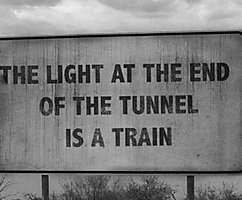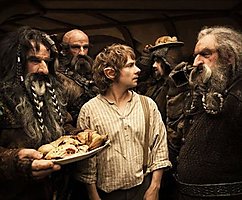5 incredible paradoxes
 Bashny.Net
Bashny.Net
Paradoxes existed since the ancient Greeks. Using logic, you can quickly find the fatal flaw in the paradox which shows why the seemingly impossible is possible, or that the paradox is simply built on the shortcomings of thinking.
1. The Paradox Of Olbers
In astrophysics and physical cosmology, Olbers paradox is the argument that the darkness of the night sky conflicts with the assumption of an infinite and eternal static Universe. This is one of the evidence the non-static Universe such as the current Big Bang model. About this argument is often referred to as the “dark night sky paradox”, which States that at any angle from the earth the line of sight will end up reaching the stars. To understand this, we compare the paradox with the human presence in the forest among the white trees. If from any point of view, the line of sight ends at the tops of the trees, the person is continues to see only white color? This contradicts the darkness of the night sky and leads many people to wonder why we do not see only light from stars in the night sky.

2. The paradox of omnipotence
The paradox is that if a being can perform any action, it may limit his ability to perform them hence it cannot perform all actions, but on the other hand, if it cannot limit its action, it is something that it cannot do. This, apparently, means that the ability of the omnipotent being to limit itself necessarily means that it really limits itself. This paradox is often formulated in the terminology of the Abrahamic religions, although it is not a requirement. One version of the omnipotence paradox is the so-called paradox of the stone: can an omnipotent being create a stone so heavy that even he will not be able to raise it? If so, that creature ceases to be omnipotent, and if not, then the being was not omnipotent from the start. The answer to the paradox is the following: the presence of weakness, such as inability to lift a heavy rock, does not fall under the category of omnipotence, although the definition of omnipotence implies a lack of weaknesses.
3. The Paradox Of Zorita
The paradox is as follows: consider a heap of sand, which gradually removes grains of sand. You can build the argument using the statement: 1,000,000 grains of sand is a pile of sand a heap of sand minus one grain is still a heap of sand. If without stopping to continue with the second action, then, in the end, it will lead to the fact that the bunch will consist of one grain of sand. At first glance, there are several ways to avoid this conclusion. One could argue the first premise, saying that a million grains of sand is not a heap. But instead of 1000000 may be any other large number, and the second statement is true for any number with any number of zeros. Thus, the response should explicitly deny the existence of such things as a bunch. In addition, someone might argue the second premise, stating that it is true not all “collections of grain,” and that the removal of one grain or a grain of sand still leaves a heap heap. Or can declare that a heap of sand may consist of one grain of sand.
4. The paradox of interesting numbers
Statement: no such thing as an uninteresting natural number. Proof by contradiction: suppose you have a non-empty set of natural numbers that are uninteresting. Due to the properties of natural numbers, the list of uninteresting numbers is sure to be the smallest number. Being the least number, it could be defined as interesting in this set of uninteresting numbers. But as originally all numbers of the set was defined as uninteresting, we came to a contradiction, since the smallest number cannot be both interesting and uninteresting. Therefore the set of uninteresting numbers must be empty, proving that there is no such thing as an uninteresting number.
5. The paradox of the flying arrow
This paradox says that in order to move, an object must change the position which he occupies. In the example given the movement of the boom. At any one time flying arrow remains stationary, because it rests, as it rests at any given time, so it is fixed always. That is the paradox put forward by Zeno in the 6th century, speaks of the lack of movement as such, based on the fact that a moving body must reach the half before ending the movement. But as it is in each moment of time is still, it can not reach half. This paradox is also known as the Fletcher's paradox. It should be noted that if the previous paradoxes talked about space, the following paradox is about the division of time is not segmented, and points.
source: brainstorm-blog.ru
Source: /users/1
Tags
See also
Relatives of the Loch ness monster
The legend of Hyperborea
The theory of information transmission from the future himself
Ancient aircraft— facts and criticism
Creepy, but once in-demand occupations
Healers from the point of view of science
"Golden Adele"—the story of one of the most expensive paintings in the world
Unusual new year traditions that were seen in different countries
Recorded "ice finger of death" - an unusual natural phenomenon in the Antarctic

















